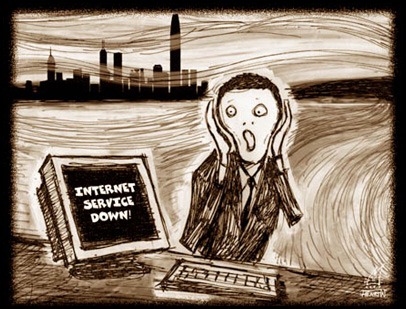Jona Lendering posted a reply on his blog to a recent post on mine, about teaching students to use online sources discerningly. His conclusion is stated bluntly at the end of the post:
To sum up: at this moment there is no good reason why students should use the internet. Let’s face it: the internet has failed.
I strongly disagree, both on principle and in practice.
 On principle, I think that there is reliable information available online, if one knows where to look and how to sift the wheat from the chaff. Even just limiting oneself to Google Books, there are lots of scholarly books available with substantial previews. There are articles on faculty web pages. And so even without the even better selection one may have if one gets access to JSTOR or NetLibrary through a public or university library, there are good things out there. And if there weren’t, then we scholars would have to be ashamed of ourselves because it is not up to others to get reliable information to the public. That is our job.
On principle, I think that there is reliable information available online, if one knows where to look and how to sift the wheat from the chaff. Even just limiting oneself to Google Books, there are lots of scholarly books available with substantial previews. There are articles on faculty web pages. And so even without the even better selection one may have if one gets access to JSTOR or NetLibrary through a public or university library, there are good things out there. And if there weren’t, then we scholars would have to be ashamed of ourselves because it is not up to others to get reliable information to the public. That is our job.
In practice, even if the above were not true, it would be the case that students will turn to the web for answers. And so we must address that reality. They do need to be prepared for instances when the internet is down – but we live in a wired world, and we need to teach students how to live in that world, not how to unplug and hunt down physical paper while others who’ve been taught differently locate the same answers as they do without those antiquated means, and more quickly and efficiently.
(Roger Pearse has also chimed in, and I understand him to agree with Jona primarily because of the travesty that most scholarly perspectives are locked behind paywalls, unaccessible to the general public. See too Tracy Mitrano’s piece in Inside Higher Ed about plagiarism before the internet.)













